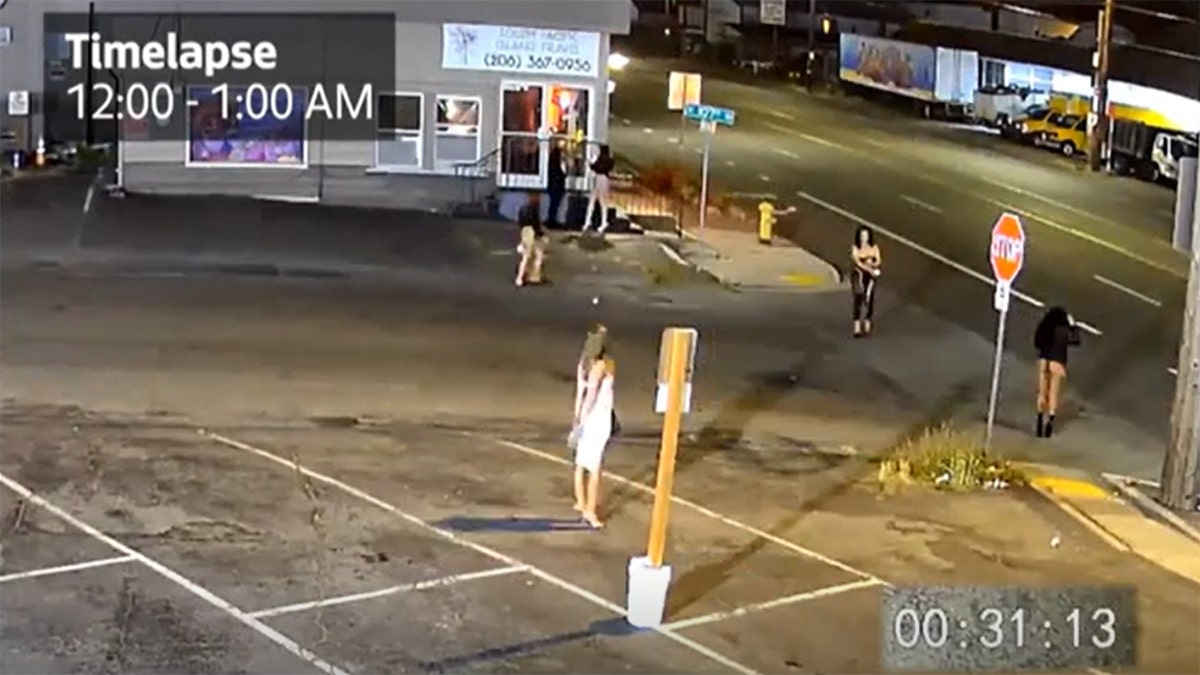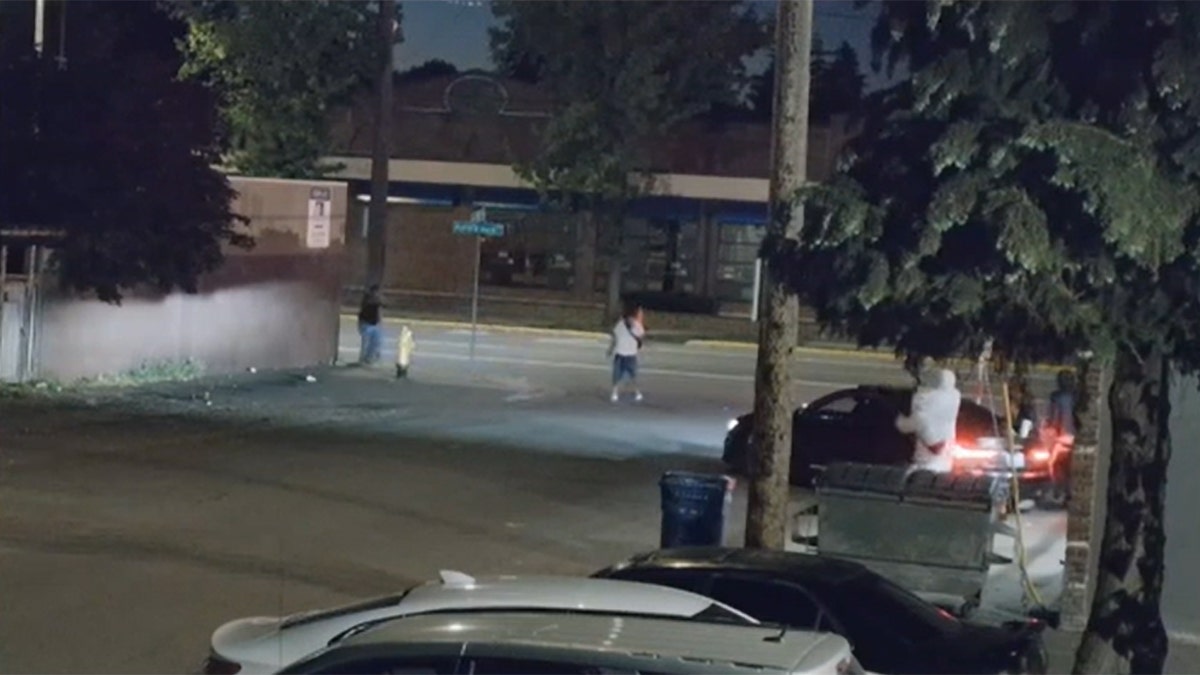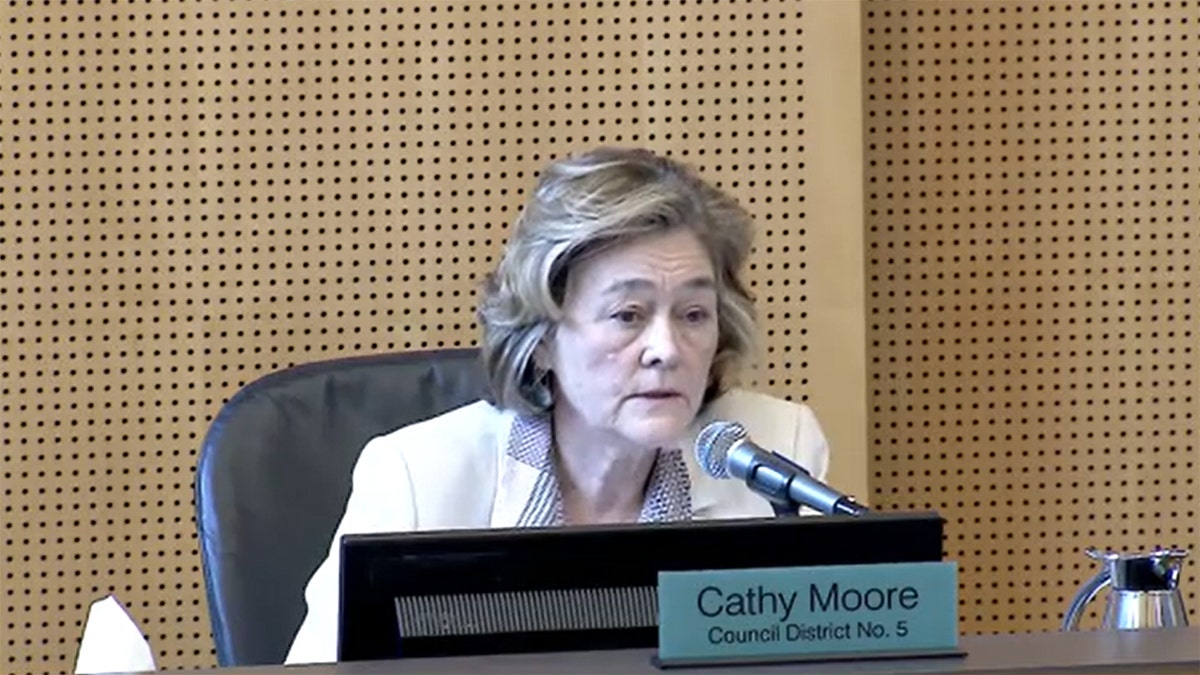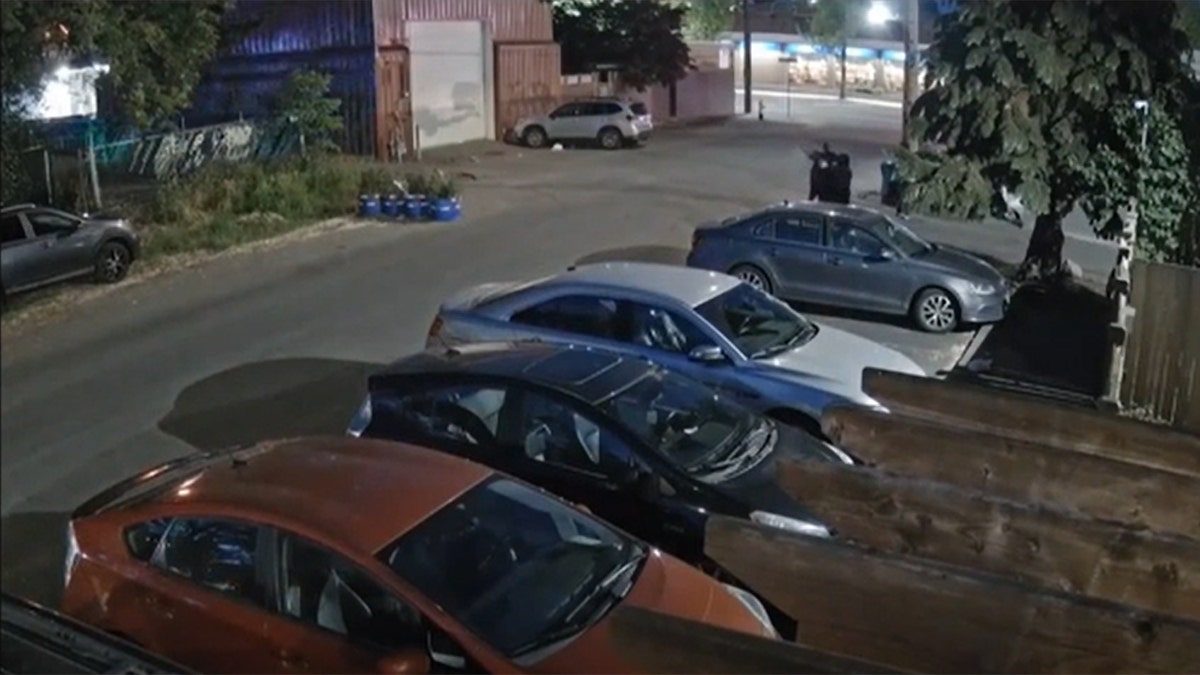The Seattle City Council's Public Safety Committee has passed a proposal to reinstate a law that makes loitering related to prostitution a misdemeanor as the city tries to combat sex trafficking, violence and drug trafficking despite strong public opposition.
Prostitution, violence and drug trafficking are rife along Seattle's Aurora Avenue, which has become a focal point of the metropolis' current debate over public safety.
FOX 13 in Seattle reported that a law that was struck down in 2020 that made loitering as a prostitute a misdemeanor is being considered by city leaders for reinstatement to help control the rundown area.
In a video shown last month at a Public Safety Committee meeting, time-lapse footage showed several women being trafficked and sold on a street corner along Aurora Avenue from midnight to 1 a.m.
VIDEO SHOWS PROSTITUTION, FIGHTING ON SEATTLE STREET CORNER AS CITY LAWMAKERS SEEK TO MITIGATE ‘DANGEROUS’ PROBLEM

An hour-long time-lapse video showed several sex workers being sold and trafficked in North Seattle. (City of Seattle)
The video also shows multiple shootings, sometimes with prostitutes standing on street corners trying to do business.
Seattle City Councilwoman Cathy Moore is proposing legislation to establish policies governing arrests related to prostitution and loitering and to create “Stay Out of Prostitution” (SOAP) zones that, if violated, could result in prosecution.
Moore said the law aims to disrupt the violent criminal enterprise of the sex trade by focusing enforcement efforts on buyers (clients) and promoters (pimps). The law also emphasizes diversion to social services, shelters and treatment for sellers, primarily women and girls, Moore said at the time.
SEATTLE BUSINESS OWNERS WARN Violent Crime Happening Nearly Every Hour: 'IT'S MADNESS'

The Seattle City Council has viewed video of several shootings breaking out near Aurora Avenue in the city's north side. (City of Seattle)
According to the station, supporters say Aurora has become an “open-air drug market” and a dangerous area where violence is common.
“It’s like a war zone in your city,” one 102nd Street resident testified at the City Council’s Public Safety Committee meeting Tuesday. “When I go home, I’m in it, and it’s just the most dehumanizing thing I’ve ever experienced.”
The resident was one of more than 100 speakers who signed up to speak at the start of the meeting.
But not everyone was in favor of the law. In fact, Moore's proposal faced strong opposition from critics who said the ordinance unfairly targeted sex workers and failed to address the root causes of gun violence and crime.
AFTER SHOOTING, SEATTLE PARENTS REGRET SCHOOL FIRING OFFICERS IN 2020: 'WHO IS PROTECTING OUR BABIES?'

Seattle City Councilwoman Cathy Moore has introduced a bill targeting pimps and sex traffickers. (City of Seattle)
“There is widespread opposition to this bill,” one speaker said. “Yet Councilwoman Moore continues to push it forward and defend the racial profiling and arrests of her most vulnerable constituents.”
A woman named Bingo, who spoke before the committee wearing animal ears and a choker, said she is a sex worker and entertainer in one of the city’s neighborhoods. Bingo said she opposed the ordinance because she relies on clients and freelance work to pay her bills. She also said the bill’s passage could kill her and her friends because it would take away money and services they rely on.
The issue centers on Moore's proposed SOAP zones along Aurora Avenue. Those zones would make loitering for the purpose of prostitution a crime.
The “Stay Out of Drug Area” (SODA) zones would target areas identified as “open-air drug markets” in places like downtown Seattle and Chinatown, the station reported.
SEATTLE ANTI-ISRAEL PROTESTERS DELAY CAMPUS SETUP AFTER BEING CAUGHT OVER LACK OF DIVERSITY: REPORT

The Seattle City Council has viewed video of several shootings breaking out near Aurora Avenue in the city's north side. (City of Seattle)
Bob Kettle, chairman of the Public Safety Committee, said neighborhoods are suffering, adding that drug dealers prey on vulnerable people in a crisis.
Several people told the committee that they would prefer to see services provided rather than the reinstatement of SOAP zones.
The bill also provides for the first time for diversion, meaning it gives officers the ability to approach sex workers and discuss the possibility of providing them with help and professional services.
In Seattle, prostitution is illegal, and according to Moore, many people don't understand that prostitution is illegal.
Promoting prostitution is a crime and the testimony of sex workers is necessary to establish a complaint. Testimony puts sex workers at additional risk and makes it difficult to prove the facts.
CLICK HERE TO GET THE FOX NEWS APP
Moore's bill also calls on the city's Department of Human Services and the mayor's office to create a work-placement program that will provide attorneys to work with people convicted of prostitution-related offenses. The goal is to get those convictions expunged from their records so they no longer exist when they apply for jobs or housing.
